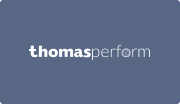Emotional Intelligence Tests & Assessments
Get insight into a person's emotions at work
- Recruit emotionally intelligent leaders
- Create a fully engaged workplace
- Develop effective teams
- Avoid conflicts & confrontation
- Improve business performance
- Create positive group interactions

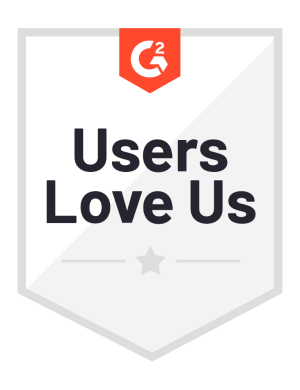
Check out the latest reviews from our most delighted customers
Thomas' Emotional Intelligence assessment
The Emotional Intelligence assessment, part of our Team Interaction Optimization (TIO) platform can help your business recruit emotionally intelligent leaders and create a fully engaged workforce of effective teams to improve business performance.
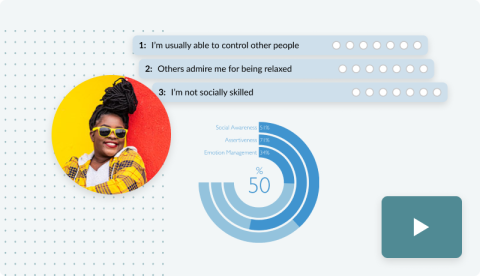
How the Emotional Intelligence assessment works
The Trait Emotional Intelligence Questionnaire (TEIQue) measures 15 emotional traits concerning Well-Being, Self-Control, Emotionality and Sociability.
Detailed Reports
Understand a person’s strengths and limitations, how they react under pressure, how well they develop new relationships and how self-motivated and adaptable they are.
No right or wrong answers
There is no right or wrong way of using emotional intelligence. There are positive and negative implications for all the different scores within the questionnaire, which are explained in the reports.
Many different uses
The TEIQue is used for a number of purposes, including appraisals, leadership training, work and life coaching, talent development, measuring employee morale, team building, recruitment and selection and many more.
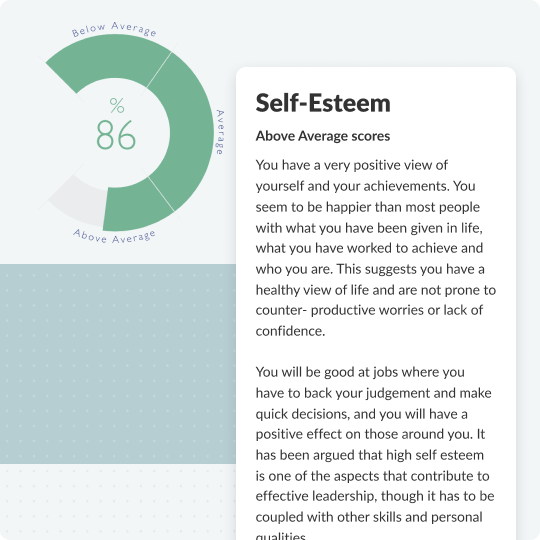
Assessment Information
- Assessment type: Emotional Intelligence
- Format: 153 questions
- Time to complete: 30 minutes
- Training required: TEIQue Accreditation
Validation:
Registered with the British Psychological Society and audited against technical criteria established by the European Federation of Psychologists’ Associations

The Emotional Intelligence assessment really helps us to get under the skin of a candidate's personality and gives prospective managers an in-depth insight into how a candidate would fit in their team.
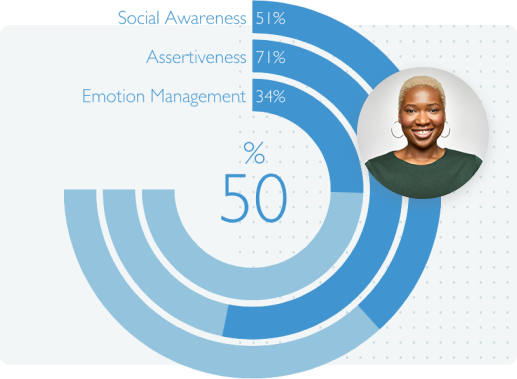
Background & Theory
The Trait Emotional Intelligence Questionnaire (TEIQue - pronounced TQ) was developed, and is continually updated, by K.V. Petrides, PhD at his London Psychometric Laboratory, currently based at University College London (UCL).
The TEIQue is based on K. V. Petrides' trait emotional intelligence (trait EI) theory, which views the construct as a constellation of emotional self-perceptions located at the lower levels of personality hierarchies. Trait EI provides a complete operationalization of the affective aspects of personality, meaning that it assesses the emotional world of the individual comprehensively.
Among other psychological characteristics, the TEIQue assesses our beliefs about our emotional abilities (e.g., how good we believe we are at identifying, understanding, and managing our own and other people's emotions). These beliefs are strong predictors of a remarkable range of behaviors and achievements, many of which are vital in the workplace (job performance, job satisfaction, job stress, leadership, organizational citizenship, organizational commitment, teamwork, etc.).
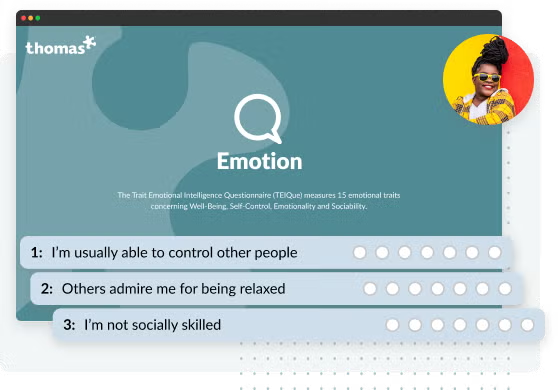
Format of the Emotional Intelligence Assessment
The TEIQue is a self-report questionnaire. Individuals indicate their level of agreement on a 1-7 Likert scale (1 'disagree completely' to 7 'agree completely') with 153 unique items.
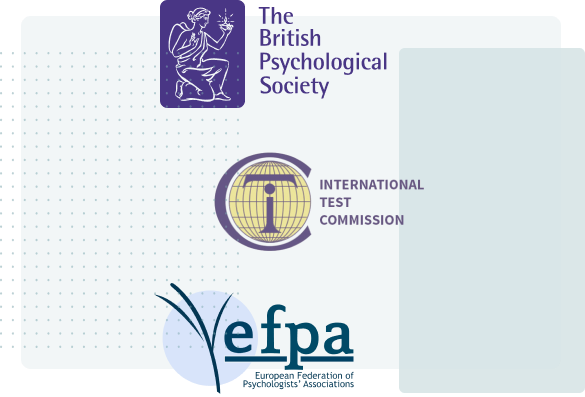
Reliability & Validity
The TEIQue is registered with the British Psychological Society (BPS) after it was audited against the technical criteria established by the European Standing Committee on Tests and Testing, part of the European Federation of Psychologists' Associations.
Thomas International conducts on-going psychometric research with the TEIQue. We have previously collaborated with the Psychometrics Centre at Cambridge University www.psychometrics.cam.ac.uk. Please get in touch with [email protected] if you are interested in supporting our continuous development programmes.
Frequently Asked Questions
What is an Emotional Intelligence psychometric Test?
An Emotional Intelligence (EI) psychometric test, such as the Trait Emotional Intelligence Questionnaire (TEIQue), is designed to measure an individual's emotional intelligence. It assesses various emotional traits related to well-being, self-control, emotionality, and sociability. The EI test provides insights into a person's emotional strengths and limitations, offering a comprehensive understanding of how they manage relationships, handle pressure, and adapt to new situations.
How to test for Emotional Intelligence
Emotional intelligence can be tested using psychometric assessments like the TEIQue. These assessments typically involve answering a series of questions that gauge various emotional traits and tendencies. The responses are then analyzed to generate a detailed report on an individual's emotional intelligence, highlighting their strengths, weaknesses, and areas for development. The EI test provides a reliable and objective measure of one's emotional intelligence capabilities.
What to expect from an emotional intelligence test for employees
An emotional intelligence test for employees provides valuable insights into their emotional strengths, limitations, and behavioral tendencies in the workplace. It helps organisations understand how employees manage relationships, handle stress, and adapt to change. The EI test generates detailed reports that can be used for personal and professional development, leadership training, performance appraisals, team building, and talent development. The test fosters self-awareness, improved communication, and enhanced emotional well-being among employees.
Why use Emotional Intelligence Tests in the workplace?
Emotional intelligence tests are valuable tools in the workplace as they provide a deeper understanding of employees' emotional competencies and how they interact with others. By assessing emotional intelligence, organisations can make informed decisions about employee selection, promotion, and development. Employees with higher emotional intelligence are often more effective in managing conflicts, communicating effectively, and building positive relationships. EI tests contribute to a harmonious work environment, improved employee engagement, and enhanced team performance.
How can Emotional Intelligence Tests help recruitment and development?
EI tests play a crucial role in recruitment and development processes. During recruitment, these tests help identify candidates with high emotional intelligence, who are more likely to excel in roles that require strong interpersonal skills. They provide insights into a candidate's ability to manage emotions, handle stress, and work effectively in a team. In terms of development, emotional intelligence tests pinpoint areas for growth and provide a foundation for targeted training and coaching programs. They contribute to the personal and professional growth of employees, enhancing their leadership capabilities and overall performance.
How can Thomas help with Emotional Intelligence Tests?
Thomas offers support and expertise in the field of EI tests. Through our TEIQue assessment, we provides organisations with a reliable and scientifically validated tool to measure emotional intelligence. We also offer comprehensive reports that highlight individuals' emotional strengths, weaknesses, and development areas. Additionally, Thomas provides accreditation training for administering and interpreting the TEIQue assessment. This enables organizations to effectively utilize emotional intelligence tests in their recruitment, development, and talent management processes, leading to better-informed decisions and enhanced employee performance.

